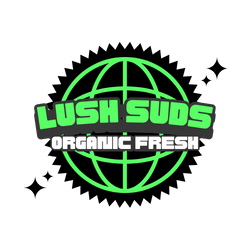Have you ever wondered what’s driving the increasing popularity of organic soaps? Well, look no further because this article is here to give you the lowdown on the latest trends in the organic soap market. With the market projected to reach a valuation of USD 519.50 million by 2030 and estimated to grow at a CAGR of 7.29%, it’s clear that a significant shift is happening. People are becoming more aware of the importance of using chemical-free products and are demanding vegan, natural, and organic alternatives. And the good news is that these organic soaps are not only skin-friendly but also cruelty-free. Plus, with the advent of online shopping, the market has found a promising opportunity for growth. So let’s dive into the insights and discover the key players in this thriving industry, which include EO Products, Osmia Organics, Lavanila Laboratories, Khadi Natural, and Unilever.
Current Market Size and Growth
The organic soap market is booming and is projected to reach a valuation of USD 519.50 million by 2030. With a compound annual growth rate (CAGR) of 7.29% during the forecast period, the market shows immense potential for growth. This upward trend is driven by various factors, including the rising awareness about chemical-free products and the shifting consumer demand for vegan, natural, and organic products.
Factors Driving the Organic Soap Market
Rising Awareness about Chemical-free Products
As people become more conscious of the ingredients in their skincare products, the demand for chemical-free alternatives has increased. Organic soaps are natural and cruelty-free, making them suitable for all skin types. Consumers are increasingly seeking products that are free from harsh chemicals, synthetic fragrances, and artificial colors. This growing awareness about the potential harm caused by chemicals in traditional soaps is a significant driver of growth in the organic soap market.
Shifting Consumer Demand for Vegan, Natural, and Organic Products
The organic soap market is benefiting from the shifting consumer demand for vegan, natural, and organic options. Many individuals are choosing to embrace a vegan lifestyle, which extends to their personal care products. Additionally, the desire to use products made from natural and organic ingredients is gaining popularity. Consumers are actively seeking out soaps that contain plant-based ingredients and are free from animal-derived additives. This surge in demand for vegan, natural, and organic products is fueling the growth of the organic soap market.
Convenience and Growth of Online Shopping
The convenience of online shopping has played a crucial role in the growth of the organic soap market. With the rise of e-commerce platforms and the increasing popularity of direct-to-consumer brands, purchasing organic soaps has become easier than ever. Consumers can now browse a wide range of products, compare prices, and read reviews from the comfort of their own homes. The growth of online shopping has opened up new opportunities for organic soap brands to reach a larger audience and expand their customer base.
Key Players in the Organic Soap Market
EO Products
EO Products is one of the key players in the organic soap market. The company offers a wide range of organic soaps that are crafted with natural ingredients. EO Products focuses on creating products that are both effective and sustainable, using organic botanical extracts and essential oils. With a commitment to transparency and high-quality standards, EO Products has gained a strong reputation in the organic soap market.
Osmia Organics
Osmia Organics is another prominent player in the organic soap market. The brand places a strong emphasis on using organic and wildcrafted ingredients in their soap formulations. Osmia Organics offers a variety of soaps that cater to different skin types and concerns. Their commitment to creating luxurious and effective products has made them a trusted choice among organic soap enthusiasts.
Lavanila Laboratories
Lavanila Laboratories is known for its range of natural and organic products, including their organic soaps. The brand focuses on creating products that are free from harsh chemicals and synthetic fragrances. Lavanila Laboratories uses natural ingredients, such as soothing botanical extracts and nourishing oils, to craft their organic soaps. With a dedication to creating products that are gentle on the skin and good for the environment, Lavanila Laboratories has become a notable player in the organic soap market.
Unilever
Unilever, a multinational consumer goods company, has also entered the organic soap market. With their vast resources and global reach, Unilever has the potential to make a significant impact on the organic soap industry. The company has launched organic soap brands under its umbrella, catering to the growing demand for natural and sustainable personal care products. Unilever’s entry into the organic soap market further validates the increasing popularity and potential of organic soaps.
In conclusion, the organic soap market is experiencing significant growth and is projected to continue its upward trajectory. The rising awareness about chemical-free products and the shifting consumer demand for vegan, natural, and organic options are the key factors driving this growth. The convenience and growth of online shopping have also contributed to the success of the organic soap market. With key players such as EO Products, Osmia Organics, Lavanila Laboratories, and Unilever, the market is filled with a variety of options for consumers seeking organic and sustainable soaps. As the demand for organic products continues to rise, the organic soap market is expected to flourish and provide consumers with healthier and environmentally-friendly alternatives for their skincare routines.
